MIT SCHOOL OF HUMANITIES, ARTS, AND SOCIAL SCIENCES
Media + Awards Digest | June 2021

The Media Digest is a section of the Said and Done newsletter. Subscribe
NEW APPOINTMENTS
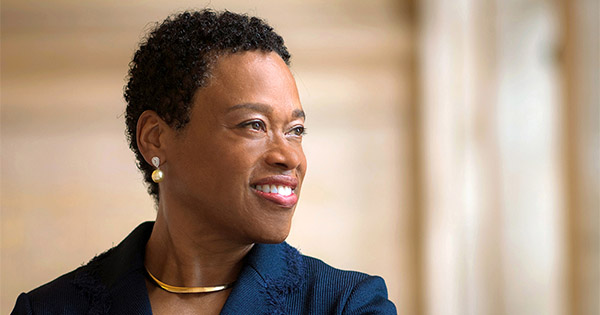
Melissa Nobles, Professor of Political Science, Kenan Sahin Dean, MIT SHASS; Photo by Gretchen Ertl
MIT
Melissa Nobles named the next chancellor of MIT
MIT has announced that its next chancellor will be Melissa Nobles, an accomplished scholar who has led the School of Humanities, Arts, and Social Sciences since 2015. As chancellor, Nobles will oversee student life and learning, in a broad role that encompasses undergraduate and graduate education and student well-being, as well as strategic planning and fundraising for all things students. Speaking of Nobles, President Reif said that "her exceptional judgment and sense of fairness paired with her incisive intellect, humane wisdom, careful listening, unfailing eloquence and charismatic wit — continue to make her an invaluable member of MIT’s academic leadership.”
Story
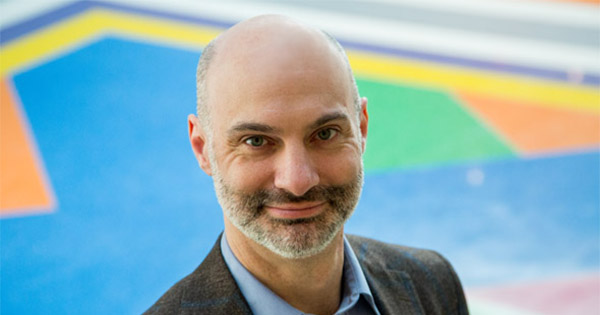
Agustín Rayo, Professor of Philosophy; photo by Jonathan Sachs
MIT
Agustín Rayo named interim dean of MIT SHASS
Provost Martin Schmidt appoints the professor of philosophy and former associate dean to the role, and launches the search committee for the new dean. Rayo writes that: “My main job as interim dean is to ensure the school can carry out its mission with minimal disruption and that the transition from Dean Nobles to her successor happens as smoothly as possible. As part of this role, I want to make sure that staff, faculty, and students have the support they need as we continue our transition to a post-pandemic normal.”
Story
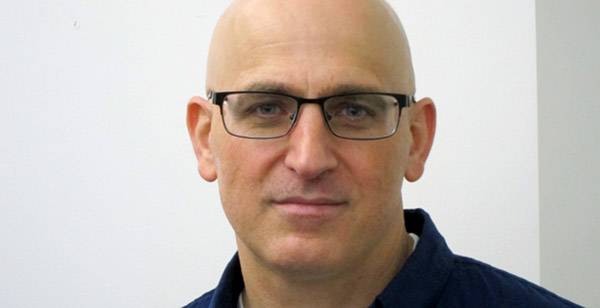
Danny Fox, Anshen-Chomsky Professor of Language and Thought at MIT
LINGUISTICS AND PHILOSOPHY
Danny Fox appointed Department Head
Fox will serve as the next Head of the Department of Linguistics and Philosophy, starting July 1, 2021. He is the Anshen-Chomsky Professor of Language and Thought and a renowned pioneer and intellectual leader of the linguistics field. Fox received his PhD from MIT in 1998 and has been a member of the MIT SHASS faculty since 2001.
Story
MEDIA DIGEST
DEMOCRACY
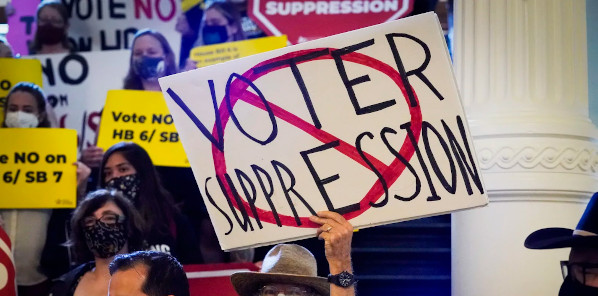
A group supporting voting rights gather at the Texas Capitol in Austin; photo via Eric Gay/AP
VOX
There are two kinds of GOP attacks on democracy | Charles Stewart III
Although not every provision of the current round of voter suppression bills can be overcome — either by vigilant voters or by smart campaigns — MIT political scientist Stewart observes that "There is very little that politicians can do to alter election administration in such a way that it would have a permanent, obvious effect on turnout or the composition of the electorate... [T]he most important factor influencing turnout, both its level and composition, are the efforts by the campaigns to turn out voters.”
Story at Vox
THE ATLANTIC
Republicans’ phony argument for election audits | Charles Stewart III
“The most charitable thing I can say is that people who are claiming that the ‘audit’ will increase confidence don’t know what it takes to increase confidence,” Stewart wrote.
Story at The Atlantic
POLITICO
Stefanik’s democracy group post sparks a staff uproar | Charles Stewart III
Stewart said Elise Stefanik was a “soft enabler, certainly” of Trump. “I wish Republicans had not gone down the path of denial of the election outcome but if we’re going to have bipartisan boards and commissions, inevitably, we’re going to have people who defended parts of Trump’s denialism,” he said. “That is the nature of bipartisanship these days.”
Story at Politico
THE ECONOMIST
Congress set to make a down-payment on American innovation | Jonathan Gruber
Gruber, whose work helped to spur the legislation to support more federal spending on science research, views the act as a “down payment” towards future innovation. He wishes the bill were larger, but considers it a good start.
Story at The Economist
FAST COMPANY
Social media can slow the spread of fake news | Adam Berinsky
A new study out of MIT and Jigsaw (Google's social technology incubator) pinpoints ways to fix misinformation on social networks. In a massive study involving 9,070 American participants—controlling for gender, race, and partisanship—researchers found that a few simple interventions can stop people from sharing fake news around Covid-19.
Story at Fast Company
THE ARTS

Michael Dewberry's “Freightways" captures sounds on the Mystic River. Image courtesy of the artist.
BOSTON ART REVIEW
Take a river walk with the “Sound on Mystic” installation | Charles Shadle
Shadle’s work is one of the fourteen pieces commissioned for Sound on Mystic, an outdoor audio installation that guides visitors along two miles of the Mystic River through site-specific sound pieces.
Story at the Boston Art Review
THE SOUNDTRACK
Interview with MIT musicologist and pianist Martin Marks
A scholarly musician and a musical scholar, Marks is is an almost unique position to talk about silent film music: In addition to his canonical book on the history of silent film music (Music and the Silent Film, 1997), he has been playing piano accompaniments for silent films regularly for nearly four decades.
Article in The Soundtrack
FORBES
This week in XR | Open Documentary Lab
MIT OpenDoc Lab has partnered with LucidWeb to make available a unique selection of award-winning 360º films by internationally renowned studios and VR content creators.
Story at Forbes
MAKING A JUST SOCIETY

Illustration: Aida Amer / Axios
WGBH
How social and racial groups perceive Covid-19 disparities | Evan Lieberman
Lieberman's study finds there are mixed reactions when people are informed of the racial disparities in Covid-19 outcomes in the U.S. Upon learning they are more impacted by Covid-19, Black Americans favor more government intervention. Most White Americans agree, but not all. The disparity suggests some new approaches for public health messaging. “We are so interconnected as a society,” says Lieberman... "[it’s important] to remind everyone that we are all potential vectors for this epidemic so it behooves all of us to cooperate and to end this pandemic as soon as possible.”
Story at WGBH
NATURE
Tackling systemic racism requires the system of science to change
MIT and the University of Glasgow are investigating their past relationship to the slave trade and slave economy, helping to build a more accurate and complete account of science history.
Story at Nature
AXIOS
How automation led to stagnant wages and inequality | Daron Acemoglu
In recent research, Acemoglu and Boston University's Pascual Restrepo calculate that 50-70% of the changes in the U.S. wage structure since 1980 can be accounted for by relative wage declines among workers who specialize in routine tasks in industries hit by rapid automation.
Story at Axios
THE NEW YORK TIMES
Trumpism without borders | Daron Acemoglu
There are “trends across countries, including growing nationalism, erosion of democratic norms, and growth of authoritarianism. The two trends affecting all of these countries are globalization and technological changes, both of which are fueling inequality and perhaps also aspirations that are going unmet.”
Story at The New York Times
BLOOMBERG
Wait, California has lower middle-class taxes than Texas? | David Autor
Wages used to be much higher in big cities regardless of where you were on the education or income spectrum, even adjusted for the higher cost of living. This is still true for college-educated workers, but not for those with some college or less.
Story at Bloomberg
ECONOMICS
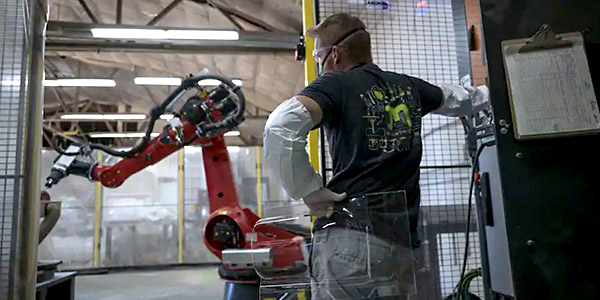
A worker watches a robot cut a piece of plastic for a face shield; photo: David Paul Morris/Bloomberg News
WIRED
Covid brings automation to the workplace | Daron Acemoglu, David Autor
History suggests “automation takes place faster during recessions and sticks thereafter,” says Acemoglu. Autor, who studies computerization and the labor market, notes that Covid has accelerated changes that almost certainly would have occurred eventually.
Story at Wired
NPR
Advice: Don't buy into a real estate frenzy | Bill Wheaton
If you can find a house you can afford that you like, and you're planning to stay there for five years, fine, buying makes sense. Otherwise, Wheaten notes that, factoring out inflation, the past one-year gain in home prices nationally is ~10 percent.
Story at NPR
FINANCIAL TIMES
Ours is a social science | Esther Duflo and Abhijit Banerjee
John Maynard Keynes said economics should be likened to dentistry. Duflo and Banerjee use another metaphor: the economist as plumber. In lectures and books, the MIT professors have pushed for research on the “plumbing” of economic systems.
Story at the Financial Times
THE WASHINGTON POST
Hiring troubles lead some employers to eye automation | David Autor
“You don't fire workers and hire a robot. That happens exactly no times.”
Story at The Washington Post
FINANCIAL TIMES
Netanyahu's regional policy reflects strategic realities | Daniel Aronoff
Aronoff, a graduate student in MIT Economics, writes, "The thawing of relations with Sunni Gulf Arab states reflects new strategic realities in the region and confer myriad benefits on Israel."
Commentary at the Financial Times
SOLVING CLIMATE

Sailboats from a window at a Boston condominium complex. Photo: David L. Ryan, Getty Images
WBUR
To survive rising seas, Boston may make land again | Courtney Humphries SM '04
Humphries writes, "Land-making is part of Boston’s identity: one-sixth of the city is built on ground that was once underwater. And now our history is coming back to haunt us."
Commentary at WBUR
THE GUARDIAN
Vaccinating the world is an indicator for solving the climate crisis | Banerjee, Duflo
"The moral failure on the part of rich countries to help poorer nations [with vaccines] can only reinforce the suspicion in much of the developing world that, despite talk of global cooperation, when push comes to shove it’s everyone for themselves. This could be devastating for global efforts against the climate crisis."
Commentary at The Guardian
HEALTHCARE
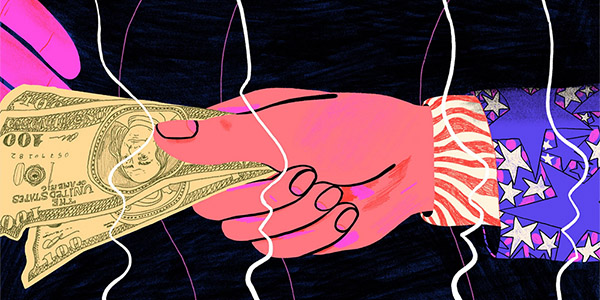
Illustration: Paige Vickers, The New York Times
NEW YORK TIMES
Cash is better than expanded health insurance for the poor | Amy Finkelstein
Finkelstein, MIT health economist and JPAL North America Co-Scientific Director, explains that transfers go directly to people in need, while health insurance expansions pay mainly for care that the uninsured already receive.
Commentary at the New York Times
THE NEW YORK TIMES
Vaccinate the world! It's the best investment ever. | Banerjee, Duflo
“It's a huge moral failure of the G7,” said Duflo. “We're so focused on our own problems that we can't see beyond.” Banerjee added that because of the risks of variants emerging from poor countries, “It's not only a huge failure, but I think it's going to come back to haunt us.”
Story at The New York Times
PBS
How ‘prebunking’ can fight fast-moving vaccine lies | Adam Berinsky
“Sowing doubt is much easier than resolving doubt,” said Berinsky, who directs the Political Experiments Research Lab at MIT.
Story at PBS | Political Experiments Research Lab
THE GUARDIAN
Falling sperm counts aren't as alarming as they sound | Marion Boulicault
Boulicault, an MIT PhD candidate in Philosophy, writes, "The lesson from the research on sperm decline is not that we are facing imminent human extinction (at least not for sperm-related reasons). Rather, it’s the more banal but accurate fact that there’s much we don’t know about the relationship between men’s reproductive health and environmental pollution."
Story at The Guardian
BLOOMBERG
Nobel laureate calls on India to boost pandemic spending | Abhijit Banerjee
It's “not clear at all” that bond markets would react negatively to moves made to avert “an ongoing series of crises. Is it possible to spend an extra 2% of GDP on this right now? Probably. Many countries have borrowed 10 times that amount.”
Story at Bloomberg
PODCAST: INFECTIOUS HISTORIANS
Trends in cancer research and related ideas | Robin Wolfe Scheffler
Scheffler, a historian of biological and biomedical sciences, discusses ideas from his recent book A Contagious Cause, including: different ways that cancer has been conceptualized; the “war” on cancer and its meaning.
PodCast at Infectious Historians | Robin Wolfe Sheffler
WGBH
Jonathan Gruber discusses the "Lower Drug Costs Now" Act
Gruber was instrumental in creating both the Massachusetts health-care reform and the Affordable Care Act.
Commetnary at WGBH
STAT
Dangerously misleading on Covid | Crystal Lee, HASTS PhD student
When Lee began studying the pandemic, she was surprised to find that different social pockets with differing politics had their own data visualizations and analyses. They all professed trust in data, but depending on how you sliced it, a graph could be found that backed almost any conclusion or policy. “There did not seem to be a shared reality,” she said.
Story at STAT
CRITICAL RESPONSE
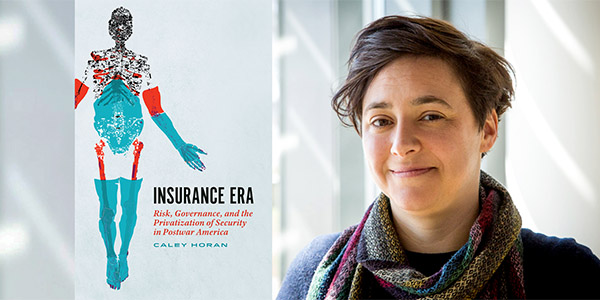
Insurance Era; cover of new book from MIT historian Caley Horan
BOSTON REVIEW
Our insurance dystopia | Caley Horan
Horan writes that the U.S. insurance industry has developed a complex relationship with the state — one that both works to the industry’s advantage and obstructs efforts for reform. More than a risk-spreading mechanism, insurance also functions as a powerful mode of governance.
Commentary at Boston Review
INSIDE HIGHER EDUCATION
What will remain? | Shigeru Miyagawa, Meghan Perdue
"We interviewed more than 30 faculty members at MIT about teaching and working during the pandemic, and these interviews gave hints of what we might expect will remain once we begin teaching face-to-face again.
Story at Inside Higher Education
GOOD DAY LA
Naming a Navy ship after Telesford Trinidad | Christopher Capozzola
MIT historian Capozzola discusses the campaign to name a U.S. Navy Warship after Fireman 2nd Class Telesforo Trinidad, who rescued his shipmates from a burning bioler room in April 1915. He is the only American national of Asian and Filipino descent to have received a Congressional Medal of Honor.
Story at Good Day LA
THE NEW YORK TIMES
How did a gay scientist of Jewish descent thrive under the Nazis? | Seth Mnookin
Mnookin reviews Ravenous by Sam Apple: "Out of more than 100 scientists from the Kaiser Wilhelm era who met the Nazi definition of being Jewish in 1933, why was it Warburg alone who remained alive and working in Germany by the time the Nazis were finally defeated?"
Review at The New York Times
WBUR AND HARVARD RADCLIFFE INSTITUTE
The Empathy Diaries | Sherry Turkle
Turkle has spent her career exploring our relationship with technology. Now, in her most recent book, The Empathy Diaries: A Memoir, Turkle explores her own relationships and how they helped shape her personality and career.
Coverage at WBUR | Interview at Harvard Radcliffe Institute
SCIENCE WRITING
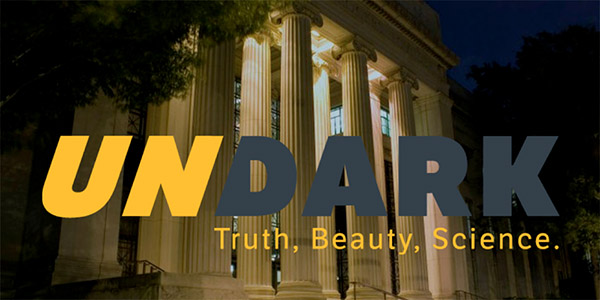
Undark is the award-winning magazine of the MIT SHASS based Knight Science Journalism Program.
THE FACTUAL
Undark magazine ranked among most objective news sources in the U.S.
Undark, the magazine of the MIT SHASS-based Knight Science Journalism Program, "is here to help us understand how science "collides with politics, economics, and culture, and where differing world views compete for resources and influence.' In 2020 and 2021, Undark has been asking important questions about Covid-19, government accountability, and a shifting climate."
Story | Visit Undark Magazine
SLICE OF MIT
Guarding against disaster | Lily Bui SM ’16 (CMS), PhD ’20
After studying disaster risk reduction and the importance of early warning systems, Bui finds it validating to apply her academic training to real disasters in the real world. Whenever a major weather event is unfolding, she says, her job becomes “high pressure and rapid paced.”
Story at Slice of MIT
INTERNATIONAL AFFAIRS & SECURITY STUDIES
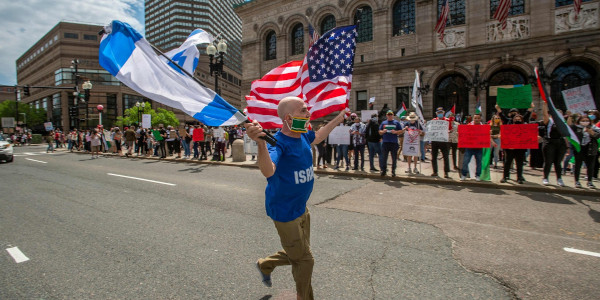
Rally to support Palestine, Copley Square, Boston; photo: Joseph Prezioso/Agence France-Pressel; Getty
THE NEW YORK TIMES
As Israel's dependence on U.S. shrinks, so does U.S. leverage | Vipin Narang
"If you had told me five years ago that the Israelis would have a layered missile defense system against short-range rockets and short-range ballistic missiles, and it was 90 percent effective, I would have said, ‘I would love what you're smoking.'”
Story at The New York Times
FOREIGN AFFAIRS
How not to win allies and influence geopolitics | Audrye Wong
Wong, a MIT Grand Strategy, Security, and Statecraft Fellow in the MIT Security Studies Porgram, says China's "economic statecraft" has not been effective.
Commentary at Foreign Affairs
FOREIGN POLICY
China’s diplomacy is limiting its own ambitions | Ali Wyne '08
Wyne and his co-author Ryan Hass write, "US policymakers consider China’s resurgence to be the greatest test yet posed by a rival nation-state to the United States’ security and prosperity."
Story at Foreign Policy
BLOOMBERG
Biden’s Europe trip is an end, not a new beginning | Barry Posen
Posen argued in a recent paper that even if the U.S. withdrew militarily from Europe, the European NATO allies are capable of defending themselves against Russian aggression.
Story at Bloomberg
WGBH
For the first time, NATO is focusing on China | M. Taylor Fravel
Both the Trump and the Biden administrations have described China as an adversary, a rival, even a threat. China has been front and center when it comes to Biden's foreign policy agenda.
Story at WGBH
MIT SHASS PUBLICATIONS DIRECTORY
A convenient, one-page portal
to all the online channels, newsletters, and publications produced by the School's 20+ departments, sections, programs, and centers. Here you will find current research, news, and commentaries from each of the MIT SHASS fields.
Visit the Publications Directory
HONORS & AWARDS
Student Awards

Sebastian Franjou '21, photo courtesy of the artist
MUSIC
Sebastian Franjou '21 wins the Louis Sudler Prize
Franjou began studying classical guitar and music theory in his native France, but he chose the United States for his university education so that he could double major—ultimately pairing music with electrical engineering and computer science.
Story
MUSIC, THEATER ARTS
Costello, Flynn, Terrasa, and Torres win 2021 Wiesner Student Art Awards
The annual awards, given for outstanding achievement in and contributions to the arts at MIT, are part of the institution’s long tradition of nurturing the performing arts. This year’s winners — Kevin Costello, Rian Flynn, Gabriel “Tony” Terrasa, and Luisa Apolaya Torres — all embody the distinctive intersection of art, humanities, and science at the heart of the MIT experience.
Story
COMPARATIVE MEDIA STUDIES / WRITING
2021 Karmel Writing Prizes winners announced
Featuring work by MIT undergrads and grad students — in every genre, from fiction to technical writing — more than four dozen pieces were prize winners this year.
About the winners
LITERATURE
Vaishnavi Phadis '22 wins award for Best Essay on Children's Literature
Of the award, which is given annually by the Children's Literature Association, MIT LIT Prof Marah Gubar says, "It’s a huge big deal."
SCIENCE, TECHNOLOGY, AND SOCIETY
Michelle Spektor and Marc Aidinoff wi Benjamin Siegle Writing Prize
The 2021 prize went to two papers that use compelling case studies to illustrate how information systems are also political projects: “Quantifying the ‘National Physique’: Deterioration, Degeneracy, and the British National Anthropometric Survey, 1904,” by Michelle Spektor, HASTS; and “Deprivation Codes: Mississippi’s Welfare System in the Age of Computers,” by Marc Aidinoff, HASTS.
Story
SCIENCE, TECHNOLOGY, AND SOCIETY
Alex Reiss-Sorokin receives fellowship at the American Bar Foundation
Reiss-Sorokin is at work on an dissertation on how choices about technologies and policies about legal search and information structure have shaped legal practice and access to justice — from “Shepard’s Citations” in the 19th century to modern legal databases.
About | Alex Reiss-Sorokin
COMPARATIVE MEDIA STUDIES AND MUSIC
Andrea Shinyoung Kim and Tony Terrasa receive 2021 Fulbright Fellowships
Kim, SM '21 in Comparative Media Studies, will conduct research in South Korea. Terrasa, a double major in music (conservatory-level jazz) and mechanical engineering will teach in Galicia, Spain.
Story at MIT News
MISTI PROGRAM
Seven of the twelve 2021 MIT Fulbright Scholars are MISTI alumni
Story at MIT News
GLOBAL LANGUAGES
Valeria Robayo '23 named a Reimagine Challenge winner
Robayo, a sophomore majoring in management and minoring in German, has been named one of 20 Reimagine Challenge winners for her proposal of a centralized mobile- and web-based service offering local community resources.
Story at MIT News
SECURITY STUDIES PROGRAM
PhD student Sam Leiter wins 1st Prize, 2021 Student Foreign Policy Essay Contest
Why should Japan stop relying on the U.S. and invest more in its own defense systems? PhD student Sam Leiter answers in his 2021 Student Foreign Policy Essay Contest 1st prize winning essay.
Story
Faculty Honors & Awards
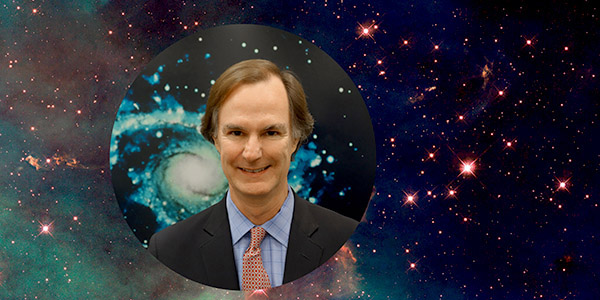
Edmund Bertschinger, Professor of Physics at MIT
WOMEN'S AND GENDER STUDIES
Edmund Bertschinger receives the Baker Award for Excellence in Undergrad Teaching
Bertschinger, Professor of Physics, was nominated by students in his MIT SHASS humanities class WGS.160 / "Science Activism: Gender, Race, and Power."
Webcast of Ceremony | Bertschinger's MIT website | Feature story on WGS.160
ECONOMICS
Esther Duflo appointed to Economic Advisory Council of Tamil Nadu
The Tamil Nadu government on Monday named former Reserve Bank of India Governor Raghuram Rajan and Nobel laureate Esther Duflo as part of a five-member Economic Advisory Council to the Chief Minister.
Story at The Indian Express
MITx PRIZE | ECONOMICS
Jonathan Gruber wins MITx Prize for Macroeconomics course
Gruber, the Ford Professor of Economics at MIT, has won a 2021 MITx Teaching Prize for his 14.01x (AP Microeconomics) course, which helps high school learners prepare for the College Board exam. Gruber's course opens "pathways that were previously cloudy or just invisible.”
Story
ECONOMICS
Institute Professor Daron Acemoglu elected to the American Philosophical Society
The APS, the oldest learned society in the United States, was founded in 1743 by Benjamin Franklin for the purpose of “promoting useful knowledge.”
Newly elected members
GLOBAL LANGUAGES | MISTI
Helena Belío-Apaolaza and Maria Khotimsky win Teaching with Digital Technology Award
The prestigious, student-nominated award is given to faculty and instructors who have used digital technology to improve teaching and learning for MIT. Khotimsky is a Senior Lecturer in Russian language. Belío-Apaolaza is a lecturer in Spanish.
Story at Global Languages | Story at MISTI | Video
Dr. Maria Khotimsky's students talk about studying Russian language at MIT
The Media + Awards Digest is a section
of Said and Done, the School's online digest.
EXPLORE
Follow MIT Now
Updates on our community's path back to campus
Subscribe to Said and Done
10 issues a year
Making a Better World | Research
Browse
Making a Just Society
Explore the Resources
Solving Climate
Browse the Commentaries | MIT Climate Portal
Ethics, Computing, and AI
Full Series
Computing and AI | Humanistic Perspectives
Full Series
Perspectives for the Pandemic
Explore the Series
SHASS on MIT News
Research and Features
MIT Campaign for a Better World
Story | Join Us
Published by SHASS Communications
Office of the Dean, MIT School of Humanities, Arts, and Social Sciences
Editor and Designer: Emily Hiestand
Publication Associate: Alison Lanier
Media Relations Manager: Stephen Oakes
Published 29 June 2021




